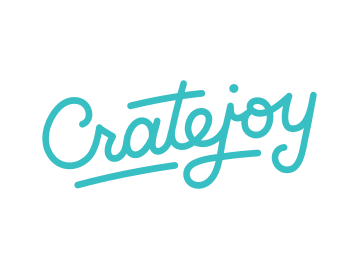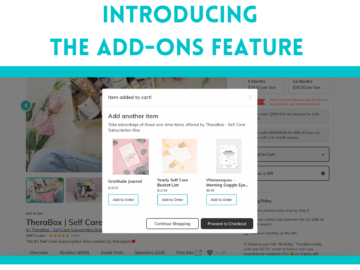Fulfillment can be one of the most time- and energy-intensive operations of running a subscription business.
In short, you’re bringing your online product into reality: gathering your products, your boxes, and all your supplies, then putting it all together.
Often, new subscription business owners wonder, Should I do it myself?
In-House Fulfillment for Subscription Boxes: The Pros
When you keep fulfillment operations within your team, it’s considered “in-house” fulfillment. You own the responsibility of prepping, packing, and shipping your subscription box. This can be useful when you’re a brand-new organization, working on building a strong subscriber base.
In-house fulfillment can start out small…
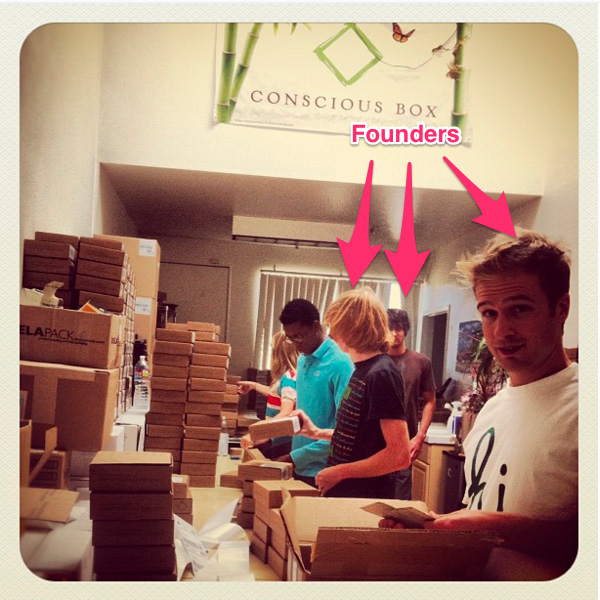
And end up huge.
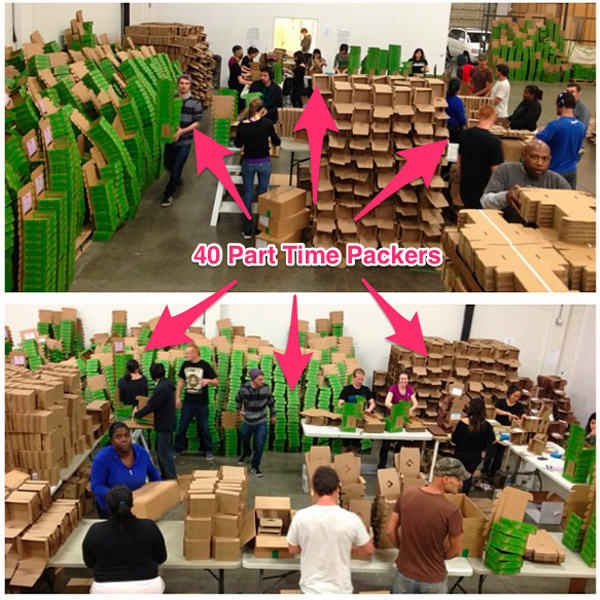
If it looks like a lot of work to scale your business, that’s because it is. We’ve already talked about this being one of the biggest challenges of operating a subscription box.
But there are perks of keeping it in-house, too.
Quality Control
Keeping fulfillment in-house satisfies one of those huge needs we have as business owners: quality control. You’ll be able to watch the production line (or be in it yourself) and ensure every box is up to your specific, meticulous standards.
The Capital You Save
Fulfillment companies’ pricing varies, often on a per-touch basis. That means every time they touch your box, products, tape, or a label, you’re being charged. Some charge a “line set-up fee” to cover the cost of organizing the packing.
If your operation is small, you’ll no doubt save money by keeping it in-house. The person doing the touching will be you and your partners – that means you don’t have a new bill to pay. As you grow, this can be harder, but not impossible to achieve.
Efficiency Experiments
Furthermore, you’ll be able to experiment with the efficiency of packing if you keep the operation under your control. Different line setups, different tools, different brands of sticky dots… whatever it is you use to pack your boxes, you can adjust and test for the fastest and highest-quality packing possible.
Sense of Scale
One of the coolest parts of doing fulfillment at scale is, well, it gives you a sense of SCALE. It’s a huge motivator and is just plain fun to look at.
Your friends (and people you never knew!) will love it
Have some qualified buddies looking for a part-time job? Realizing you need to do some interviews and find some extra help? You just became an employer.
But What About the Cons?
As you can guess, there are some serious drawbacks to doing in-house fulfillment, too. When you scale this operation, the significance of these will begin to rear their heads:
You’re Forced to Focus on Minutiae
Because of the ease of outsourcing, keeping fulfillment in-house means you need to understand that you’re spending time and energy on what could be considered minutiae.
It’s something you need to do well, sure, but it’s not something that inherently will grow your business. If it’s done well, no one notices (which is good – it’s supposed to be that way). Only if it’s done poorly will customers feel upset. A good fulfillment partner can guarantee it will be done well.
Pro tip: Cratejoy integrates with a number of fulfillment and shipping services, like Pirate Ship, ShipStation and ShipBob. See the full list of Cratejoy integrations here.
In other words, acknowledge you’re spending time on something that pretty feasibly could be outsourced. That lost time could be spent on marketing, product sourcing, or other innovations.
Incoming 1099s, HR and Employees
One evening, I walked out into our warehouse and saw some 40 timesheets scattered across two folding tables. Our warehouse manager frantically was matching things up.
Some of our part-time staff was talking about next week’s schedule.
We had to fill in the blanks with who would be missing. We had to find extra staff. We had to lay off other people.
Ugh.
Keeping fulfillment in-house, especially at scale, is going to be a very different operation than when you’re only packing a few hundred or few thousand boxes. It will require full-time warehouse and staff managers – even multiple, depending on your scale of operation.
The Facility
To keep fulfillment operations in-house, you’re also going to need the following.
- A big, safe warehouse,
- a tool to track inventory on your essential packing items, like boxes, tape, tissue, and packing materials, and
- inventory management of your goods that go inside your box.
To see how this contrasts with outsourcing, read below…
Outsourced Fulfillment: Ease Comes With a Cost
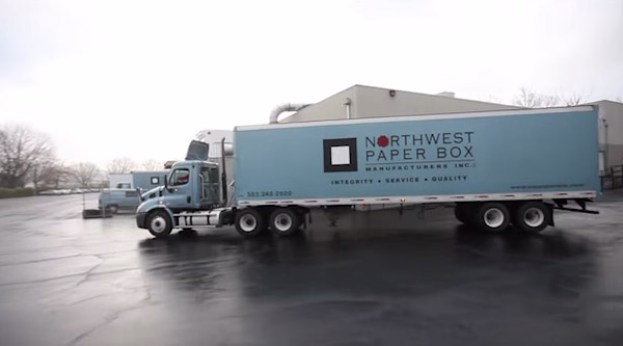
When you’re considering outsourcing fulfillment, you need to understand a few things:
- Your fulfillment center might not be local
- You’ll incur new costs
- You need to be able to trust your fulfillment partner
For me, #3 was always the hardest part. I’ve obsessed over product quality and been in a number of arguments with co-founders about outsourcing fulfillment (or outsourcing anything for that matter).
Let’s take a look at some of the pros, though.
No more counting, inventory, or sorting
Your fulfillment partner will have a stock of supplies you can order in advance of packing. There may be a slight premium on the price, but generally, this is close to the cost you’d incur to have the material at your own facility.
Plus, they’ll receive your product, count it, and store it until packing day. This means you have a third party who manages the entire inventory process for you! If there’s ever a problem, it’s caught quickly.
Pay an expense, not an employee
No more timesheets, 1099s, checks missing, or awkward conversations with your friends because they aren’t packing a box the right way. Instead, you’ll pay an expense, not an employee.
Quality is pretty dang high
I find that most fulfillment companies have really great packing quality – it is their day job, after all.
Plus, you get some security. When something goes awry, they may offer discounts, refunds, or other perks.
Free up your schedule
Like we mentioned above, outsourcing means less time spent on the minutiae of your business. Gone is the day of you and your co-founder folding boxes. Go get some subscribers instead.
But What About the Cons?
There are definitely some cons that come along with outsourcing, too.
Trust
Like I mentioned, this is one of the most critical parts of packing for me. With a fulfillment center, be sure to get pictures of your box or go in and see it if you can. Once you establish some trust with your partner, this is easier to accept.
Cost, cost, cost
Yes, this is going to cost you more money. For example, at about 300-500 boxes, I’ve found that it costs about $500 more to outsource it. (We’re using a box packed with 6-8 products as our metric.)
Occasionally, there is a hidden fee, like storage or extra packing material when your calculations were off.
This is a trade-off, though. You’ll save money by spending your own time working on in-house fulfillment, but outsourcing means you’ll save your time. What’s that time worth to you and your business?
Oh, and shipping cost
If you’re sourcing local products, for example, you’ll now need to ship them to your fulfillment partner. Shipping doesn’t come cheap.
So make sure you bring this calculation into scope when considering outsourcing.
When Should I Outsource? Is There a Magic Number?
Yes and no.
Once you reach about 500 subscribers, you’ll reach the minimum for most fulfillment companies.
You can then do some math:
- What hourly employees’ expenses do you have?
- Compare this to your fulfillment company’s pricing plan. Is it per touch? If so, how much would it have cost them to pack your last box? Have them pull together a quote for you.
- What have you been spending on packing essentials (such as tape, inserts, or packing material)?
- What pricing does your fulfillment center provide for the same materials?
- What other fees are there? (Storage, delivery, counting fees?)
With this math in hand, you also want to consider the greater relationship and how it will work with your business.
- Can you get pictures of box builds to approve before they pack?
- How flexible is their schedule, and how far in advance do you need to schedule packing? How does this relate to your procurement schedule?
- What kind of guarantees do they offer in case of breakage or other problems with packing?
Fulfillment: It Depends on Your Business
It’s important to realize that where you place your fulfillment efforts greatly depends on your business.
If you’ve got a partner who has done warehouse management before, that’s a good reason to keep it in-house. If you and your team are scrappy with marketing, but not the most crafty people, that’s a good reason to outsource it.
So, what makes more sense to you: in-house or outsourced fulfillment?

